B is for Bradbury
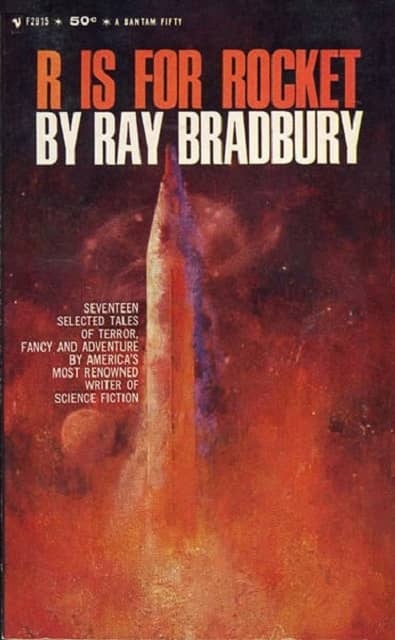 |
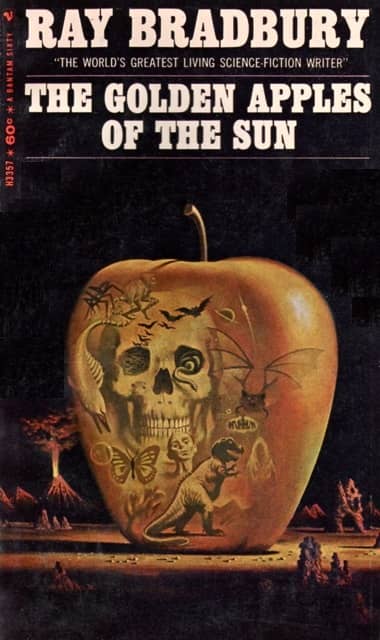 |
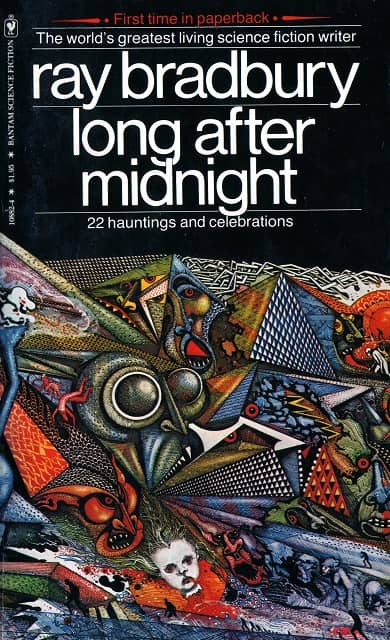 |
R is for Rocket (Bantam, 1965, cover by Paul Lehr), The Golden Apples of the Sun
(Bantam, 1970, cover by Dean Ellis), Long After Midnight (Bantam, 1978, cover by Ian Miller)
June 5, 2022 marks the 10th anniversary of the death of Ray Bradbury, one of the greatest speculative fiction writers of all time. It’s fair to say that no author has positively affected my path into reading, and subsequently writing, to the extent that he did. Through this four-part series, I hope to convey some of the joy and wonder that Bradbury instilled in me and so many others, by revisiting a selection of his short stories that have continued to resonate with me throughout the years. Disclaimer: I don’t profess that my selection are his greatest tales, no matter what your definition of the term, but they hold a special place in my pantheon of stories, and I hope they will be worthy of your time.
Part 1 – Prose
Ray Bradbury was in his prime during the Golden Age of science fiction – in the 1940’s and 50’s, when Robert Heinlein and Isaac Asimov also lined the bookshelves. While Asimov and Heinlein were exploring the remarkable possibilities of our technological future, Bradbury was reminding us what it is to be human, even while standing on the red soil of Mars.
Bradbury spoke of space travel and the future, with one foot firmly planted in humanity’s roots. His stories held no schematics on the workings of spaceships, time machines, or alien technology, as these were not the stars of the show, but merely props used to highlight the eternal human condition.
He was a master at dropping you into an alien world that was scientifically credible enough that it wouldn’t distract you from the flow and integrity of his story, while simultaneously assuring you that, in another universe, this was a perfectly reasonable possibility.
Thrilling Wonder Stories, August 1949. Cover by Earle Bergey
“Dark They Were, and Golden-Eyed”
First Published: Thrilling Wonder Stories, August 1949
Which collection: S is for Space
The gist: A family flees the war on Earth for the unfamiliar landscape of Mars. But, they are anxious that the Martians who have long deserted the ruined cities might somehow still be there.
Why I love it: This was a Martian story I read prior to experiencing The Martian Chronicles, and I embraced the thought that life on Mars was possible, and potentially superior to that on Earth. As an expat, I have come to further appreciate how we are molded by our surroundings and our experiences, at least as much as we are by the culture and circumstances of our birth.
Why it’s worth reading: Heavy on metaphor and atmosphere, Bradbury creates characters who are aware that something is not the same, but are unable to fathom the cause or degree, and we experience the mysterious series of changes with them. The journey and the payoff are worthwhile, as long as one can hold off looking for the science behind it all, and just enjoy the ride.
The excerpt:
The wind blew as if to flake away their identities. At any moment the Martian air might draw his soul from him, as marrow comes from a white bone. He felt submerged in a chemical that could dissolve his intellect and burn away his past.
Most striking is the structure of Bradbury’s prose. I have never been one to patiently accept narrative dalliances, but Bradbury could set you at ease about the plot and give you the freedom to follow his words as they flowed, like poetry, with flittering purpose towards what was ultimately a satisfying and inevitable conclusion.
Upon his death, in 2012, Bradbury was named ‘the writer most responsible for bringing modern science fiction into the literary mainstream’ in an article by The New York Times. He was an author who could have elected to write in any genre, but chose speculative fiction, not because of engineering expertise, but because the curiosity and wonder he held as a child persisted as he wrote.
I have never listened to anyone who criticized my taste in space travel, sideshows or gorillas. When this occurs, I pack up my dinosaurs and leave the room.
The Saturday Evening Post, June 23, 1951. Cover by Amos Sewell
“The Fog Horn”
First Published: The Saturday Evening Post, June 23, 1951
Which collection: The Golden Apples of the Sun
The gist: Two lighthouse keepers, one grizzled veteran and one new recruit, hunker down on a cold November night in anticipation of an inexplicable, annual visit.
Why I love it: Coming from the east coast of Canada, any story with a lighthouse will win me over. But more than that, the despair and loneliness brought forth by these structures has always been something visceral, and Bradbury captures it with perfection.
Why it’s worth reading: The prose is wonderful, and the quote below is said to be one of Bradbury’s favorite paragraphs he had ever written. His use of the sea to mirror time and humanity’s fleeting place on the planet takes staring up at the stars to a far deeper level.
The excerpt:
One day many years ago a man walked along and stood in the sound of the ocean on a cold sunless shore and said, ‘We need a voice that is like to call across the water, to warn ships; I’ll make one. I’ll make a voice like all of time and all of the fog that ever was; I’ll make a voice that is like an empty bed beside you all night long, and like an empty house when you open the door, and like trees in autumn with no leaves. A sound like November wind and the sea on the hard, cold shore. I’ll make a sound that’s so alone that no one can miss it. That whoever hears it will weep in their souls, and hearths will seem warmer, and being inside will seem better to all who hear it in the distant towns. I’ll make me a sound and an apparatus and they’ll call it a Fog Horn and whoever hears it will know the sadness of eternity and the brightness of life.
Part 2 – Genre
Bradbury’s self-proclaimed epitaph, which is engraved on his very simple gravestone, is ‘Author of Fahrenheit 451’. It’s not surprising, really, that of the hundreds of stories Bradbury wrote, the one he designated to eternally align with his name is his most famous work, a science fiction novel.
The irony lay in the fact that he only wrote seven proper novels in his career while he managed over 400 shorts and novellas, divided into a multitude of collections. Dig deeper and the irony you strike will include the fact that Bradbury never actually considered himself science fiction writer:
I don’t write science fiction. Science fiction is a depiction of the real. Fantasy is a depiction of the unreal. So Martian Chronicles is not science fiction, it’s fantasy. It couldn’t happen, you see?
The Arkham Sampler, Summer 1949
“The One Who Waits”
First Published: The Arkham Sampler, Summer 1949
Which collection: The Machineries of Joy
The gist: A crew from Earth lands on an abandoned Mars, only to discover a well filled with pure water, and perhaps something else.
Why I love it: The severity of this tale caught me by surprise, coming as it did very early on in my Bradbury experience, and left an indelible mark. I’m fairly certain that half a dozen Star Trek episodes have been based on it!
Why it’s worth reading: This is the ultimate cross-genre story with elements of sci-fi, fantasy and horror, perfectly blended into one. The suspense and menace ratchets up throughout, and it doesn’t disappoint.
The excerpt:
I live in a well. I live like smoke in a well. Like vapor in a stone throat. I don’t move. I don’t do anything but wait. Overhead I see the cold stars of night and morning, and I see the sun. And sometimes I sing old songs of this world when it was young. How can I tell you what I am when I don’t know? I cannot. I am simply waiting.
Though Bradbury seemed to identify as a fantasy author, his career began in the mystery/horror realm, as he made attempts in his early years to emulate one of his heroes, Edgar Allen Poe. Although, superficially, it appears Bradbury became somewhat devoted to space and dystopian futures, he often drifted back into old habits with mysterious elements frequently underpinning these stories or quietly filling his collections on their own.
In the 40’s Robert Heinlein put forward the term ‘speculative fiction’ as a sub-genre of Science Fiction, meaning stories that were more concerned with the human response to science or technology, rather than the technology itself. Today’s definition, of course, is much broader, including all types of Science Fiction, Horror and Fantasy. Bradbury may have been the first writer to truly embody the term Speculative Author, in line with both definitions, something that surely cements his place as a grandmaster of the genre.
Weird Tales, July 1943. Cover by E. Franklin Wittmack
“The Scythe”
First Published: Weird Tales, July 1943
Which collection: The October Country
The gist: A family, down on their luck and in need of food and shelter, stumbles across a farmhouse in the middle of nowhere that holds a surprising legacy.
Why I love it: I find the 1930s Americana of the piece quite charming, and coupled with the disquiet created within the opening paragraphs, the story has an atmospheric quality that captures the dreaded wait for the inevitable.
Why it’s worth reading: Most men lead lives of quiet desperation. This was as true when Henry David Thoreau wrote it in 1854, as it was when Bradbury wrote this story, and as it is today. And, while everyone has to face their fate, they may get to choose how they do so.
The excerpt:
Drew stared at his hands. A farmer’s hands, with the farm blown out from under them by the dry, hungry wind that never got enough good loam to eat.
The kids in the back seat woke up and pried themselves out of the dusty litter of bundles and bedding. They poked their heads over the back of the seat and said:
“What are we stoppin’ for, Pa? Are we gonna eat now, Pa? Pa, we’re awful hungry. Can we eat now, Pa?”
Drew closed his eyes. He hated the sight of his hands.
Part 3 – Wonder
I first encountered Ray Bradbury at a flea market in the cluttered corner of a bingo hall on a sweltering summer day in 1978.
I had excused myself from my mother, who was browsing through stacks of romantic novels and racks of second-hand dresses, when I was captivated by a beam of light filtering through a cracked window high above my pre-teen head. Within it, dust particles danced downward, leading my gaze to a box of pre-read paperbacks that peaked out from beneath a well-used card table in the dust of the concrete floor. Red marker-pen scrawled in a hasty hand declared the contents to be 25 cents each, or 5 for a dollar.
On the very top of the pile sat a cubist nightmare of cover art (expertly rendered by Ian Miller), with lowercase lettering stolen from ee cummings that proclaimed ‘ray bradbury’ to be ‘the world’s greatest living science fiction writer.’ Long After Midnight, the paperback, was in pristine condition (having only been released a few months before). The cover promised me 22 hauntings and celebrations, including time travel, androids and a trip to Mars.
Mesmerized, I dug in my pockets for the shiny quarter my grandfather had given me the day before, and I purchased my very first Bradbury. I immediately rushed from the musty bingo hall out onto the wide, painted concrete steps seeking sufficient light to consume my treasure. I opened the cover and helplessly fell into Bradbury’s prose.
Planet Stories, Fall 1950. Cover artist unknown
“The Blue Bottle”
First Published: Planet Stories, Fall 1950
Which collection: Long After Midnight
The gist: Two drifters with differing perspectives find themselves partnered as they explore the long-deserted and crumbling cities of Mars in search of the legendary Blue Bottle, and the mystery it holds.
Why I love it: This was the first Bradbury story that I ever read, and will forever get a pass on that basis. Luckily, the power of the mysterious Blue Bottle and its influence and effect on those that chase it are plenty compelling on their own.
Why it’s worth reading: This is an excellent Martian story that was omitted from The Martian Chronicles, at least partly because of the differing history. It holds up to present-day reading and highlights that humans require purpose to make their lives worthwhile, even though we are not all motivated by the same goals.
The excerpt:
In shattering flights, stone animals with vast granite wings dived to strike the courtyards and fountains. His cry summoned them like living beasts and the beasts gave answer, groaned, cracked, leaned up, tilted over, trembling, hesitant, then split the air and swept down with grimaced mouths and empty eyes, with sharp, eternally hungry teeth suddenly seized out and strewn like shrapnel on the tiles.
I absorbed three stories before I came to the panicked realization that I needed to check for more of these books before the market closed. I raced to my mother and begged her for a dollar (with wild promises of the bevy of helpful chores I would perform), though in truth, I think she was pleased enough I was showing an interest in reading for the first time (alas, the Hardy Boys books I was gifted didn’t strike a chord). Dodging through the remaining patrons, I got to the corner stall as the proprietor was starting to tear down.
In the same innocuous box where I found Long After Midnight, I unearthed five more treasures: The Golden Apples of the Sun, I Sing the Body Electric, The Machineries of Joy, R is for Rocket, and S is for Space. I was most excited to find the latter two, as this implied that a whole alphabet of books awaited me somewhere in the stacks and boxes of used books out in the world – and I spent more time than I care to admit chasing these non-existent tomes, while completing my set of the books Bradbury actually did write.
The Magazine of Fantasy and Science Fiction, February 1952. Cover by Chesley Bonestell
“The Pedestrian”
First Published: The Magazine of Fantasy and Science Fiction, February 1952
Which collection: The Golden Apples of the Sun
The gist: Leonard Mead decides to take a walk through the deserted streets of his hometown in 2053 and has a life-changing encounter.
Why I love it: This was the first Bradbury story I was asked to read for school, and I couldn’t believe my good fortune. I have always been a lover of nighttime walks through deserted city streets, and have spent many an hour walking through London after dark, catching glimpses of activity behind shuttered windows, without ever interacting with another living soul.
Why it’s worth reading: Considering this was written 70 years ago, Bradbury very accurately foretold the obsession that society would have with screens, and how this would quickly become the norm. He also paints a compelling picture as to why we should all take that break from our devices that we keep promising we will.
The excerpt:
Sometimes he would walk for hours and miles and return only at midnight to his house. And on his way he would see the cottages and homes with their dark windows, and it was not unequal to walking through a graveyard where only the faintest glimmers of firefly light appeared in flickers behind the windows. Sudden gray phantoms seemed to manifest upon inner room walls where a curtain was still undrawn against the night, or there were whisperings and murmurs where a window in a tomb-like building was still open.
Part 4 – Spirit
An enduring paradox of Bradbury’s body of work, is that, even though he is often credited with being the most literary of his contemporaries, and his stories often feature the dead or dying, his unwillingness or inability to embrace hard-science or stronger adult themes has seen his critics refer to his work as being childish, or designed for children. Bradbury fully embraced this critique, however:
I feel like I own all the kids in the world because, since I’ve never grown up myself, all my books are automatically for children.
He believed that story-telling should be something that inspired fun in both the writer and the reader, insisting that it was his primary motivation for pursuing the craft. “If you are writing without zest, without gusto, without love, without fun, you are only half a writer.”
Weird Tales, May 1948. Cover by Matt Fox
“The Black Ferris”
First Published: Weird Tales, May 1948
Which collection: Ray Bradbury Stories Volume 1
The gist: Two young boys suspect something sinister is afoot when the arrival of a travelling carnival coincides with the appearance of a strange orphan boy in the town.
Why I love it: This is an embryonic Something Wicked This Way Comes and carries the same sense of dread, and fear of the unknown. As a young teen, I (controversially) enjoyed and embraced Something Wicked more than Fahrenheit 451, due to its suspense and delineation of good and evil. Additionally, I have always felt that something about carnivals, fairs and the like just feels wrong, and it’s great when fiction proves me to be right!
Why it’s worth reading: As a springboard to Something Wicked, it is ideal, though it carries its own weight as a complete story. It is an encapsulation of childhood daring in the face of the unknown, and the conviction that the young can help, if only they are afforded the opportunity.
The excerpt:
The carnival had come to town like an October wind, like a dark bat flying over the cold lake, bones rattling in the night, mourning, sighing, whispering up the tents in the dark rain. It stayed on for a month by the gray, restless lake of October, in the black weather and increasing storms and leaden skies.
Perhaps Bradbury is indeed an author to read when you are younger, when you still have a heaping dose of hope for the world, and before the cynicism of age weighs you down too much to soar with the spirit of his prose.
Of course, there’s always the chance that, given the right conditions, on a particular night when the air is still, and the only sound is a distant train coursing its way through the moonlight, he may just help you win back the tiniest pinch of your soul.
Thrilling Wonder Stories, October 1949. Cover by Earle Bergey
“Kaleidoscope”
First Published: Thrilling Wonder Stories, October 1949
Which collection: The Illustrated Man
The gist: A spaceship rips open, scattering its crew out into the void, each in a different direction. Their communicators work long enough to cause and heal some old wounds, and for some to reflect on their time under the sun.
Why I love it: The story’s concept was unique for the time, where there seems no hope for this crew whose vessel has suffered a catastrophic fate. The dialogue and interplay between the crew kept me engaged as though I was floating there with them, and I was compelled to stay until I learned their collective fates.
Why it’s worth reading: All men die, but not all men truly live. Though, each of us can never be certain of the effect we have on the world.
The excerpt:
With a feeling of cold water rushing through his head and body, Hollis knew he was right. There were differences between memories and dreams. He had only dreams of things he had wanted to do, while Lespere had memories of things done and accomplished. And this knowledge began to pull Hollis apart, with a slow, quivering precision.
Darryl R Williams has been an avid fan of speculative fiction since discovering a trove of Ray Bradbury paperbacks at a flea market at the tender age of nine. He presently resides among the castles of Wales with his wife, three children, and three dogs, and spends his days working in Public Health. His first novel is almost done. His last article for Black Gate was V Isn’t Always for Vendetta.
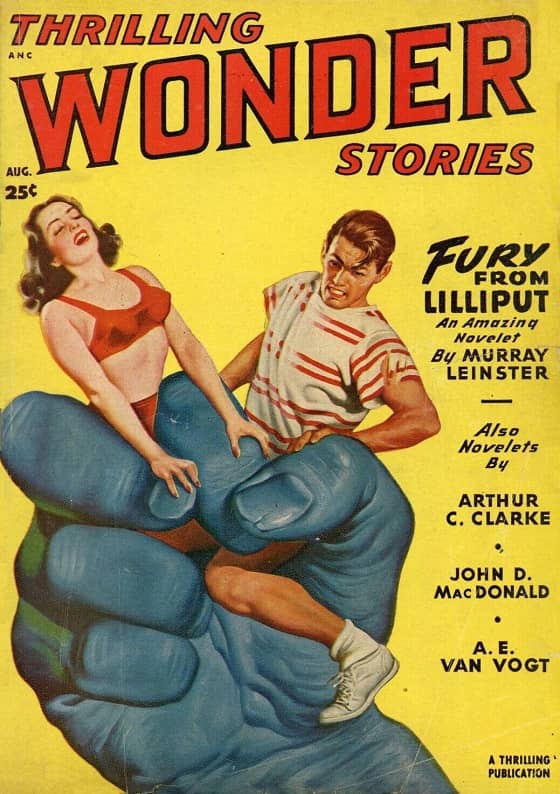
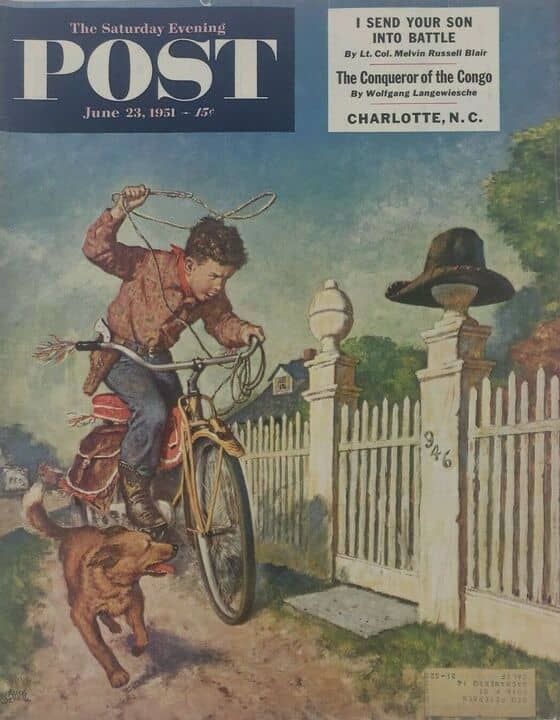
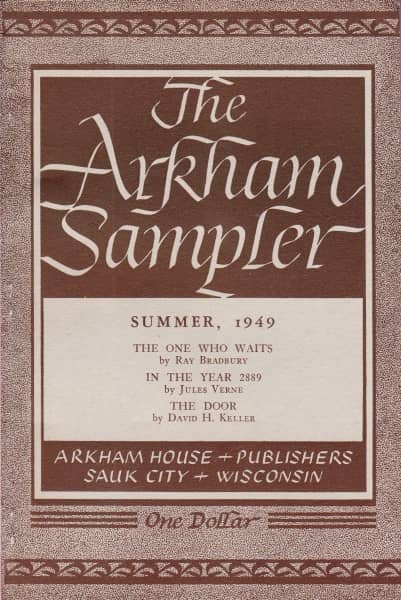
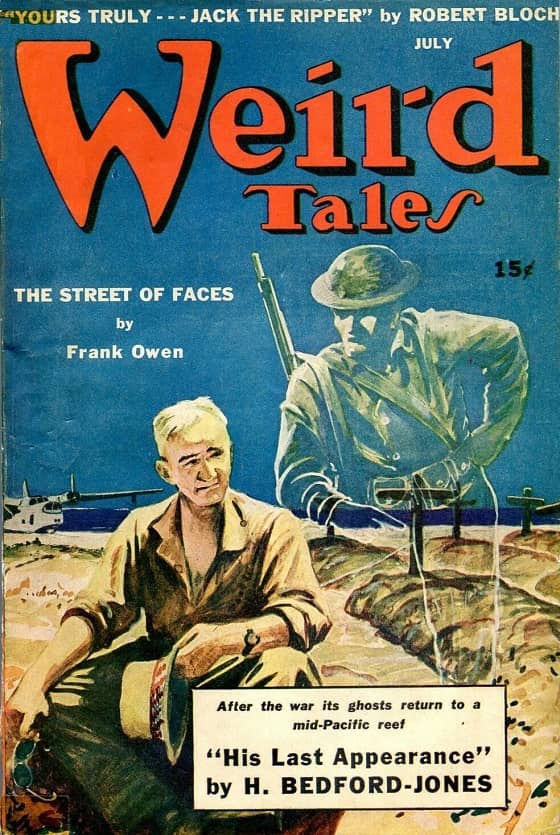
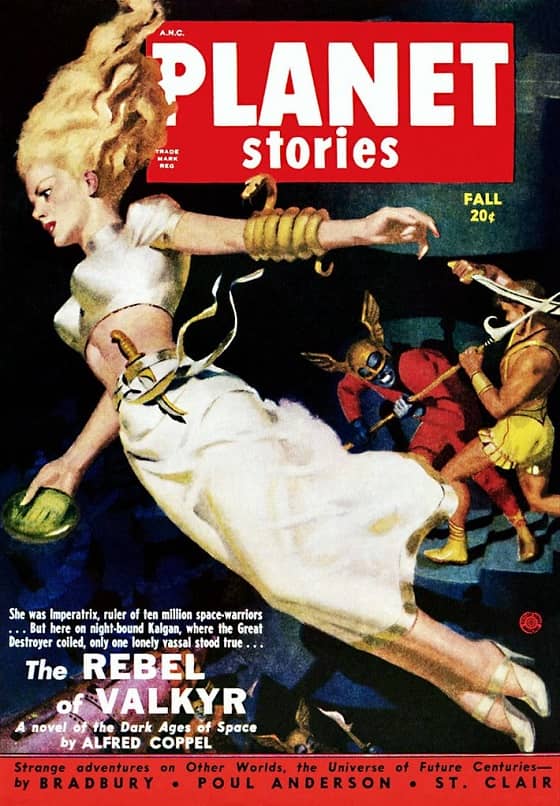
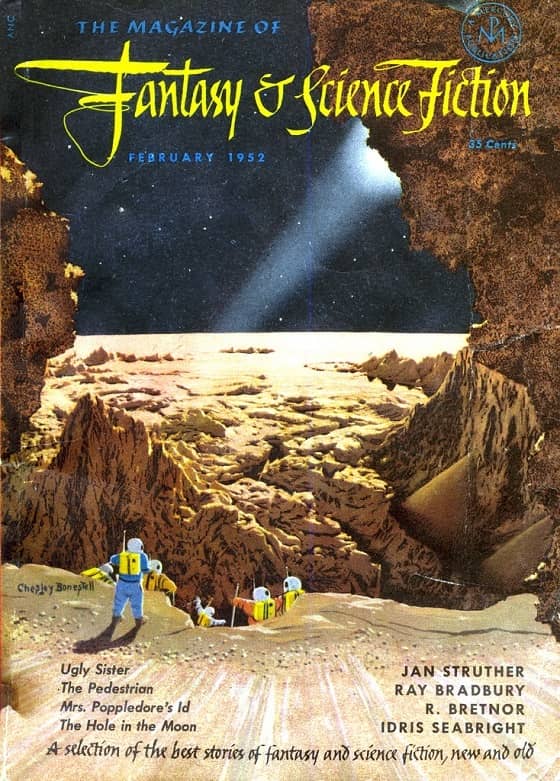
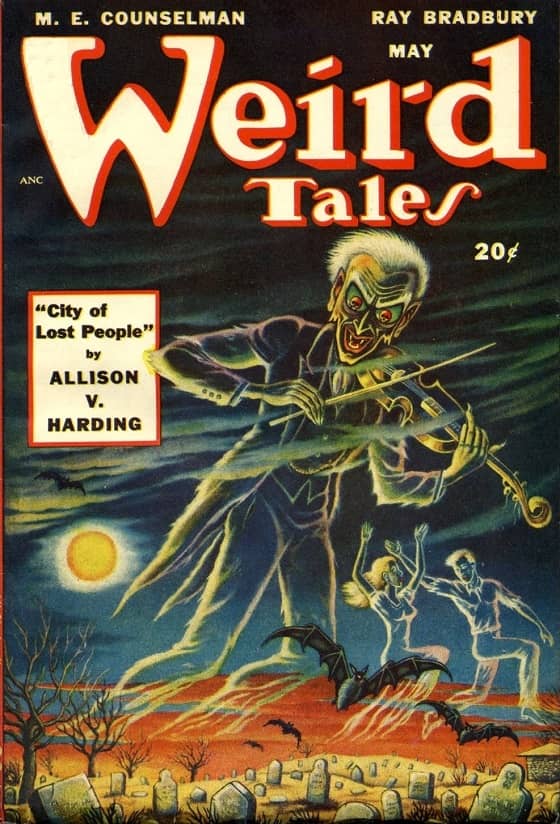
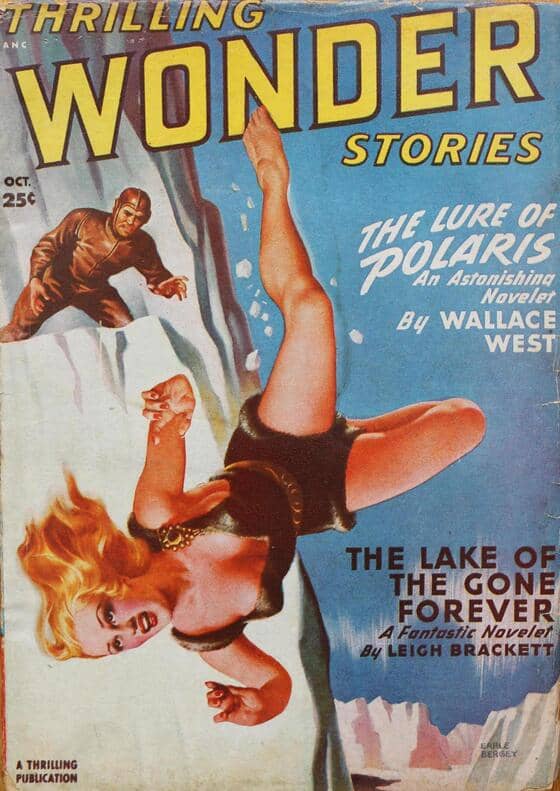
Around Halloween, I reread The October Country which I had read years before. It was my first Bradbury in years. Interesting, one story in it that I remembered well I remember the plot but thought it was by Theodore Sturgeon.
Strangely, Matthew, I did the same thing this year, which put Bradbury back into my consciousness. He has the perfect tone and imagery for autumn and Halloween, and his stories, when they connect, do tend to linger in the mind.
Bradbury is great around Halloween. He’s not the scariest, barring certain stories, but he has a great sense of the macabre.
Bradbury was a class act. A writer of comparatively humble background (did he even go to college?) with a unique literary voice. I re-read The Scythe a few months back, and it was every bit as good as I remembered. The only story that doesn’t ring a bell on your excellent list is The Black Ferris.
I couldn’t agree more, Aonghus, and you’re right that Bradbury never attended college. Instead, he was an incredible advocate of libraries, and accordingly spent a large portion of his youth in them. The Black Ferris never made it into one of his traditional collections, so it’s a bit rarer, but worth a look if you get the chance.
A person with the right mindset can pick up quite an education in a library. Too many people mistake a degree with an education.
Man, it’s been many years since I read Bradbury, and I really should do something about that. I remember at the library they had a book called Pillar of Fire that had [scurries off to check Goodreads] three Bradbury stories (Pillar of Fire, The Foghorn and Kaleidoscope) written in the form of stage plays; I know I checked that book out and read it multiple times and Kaleidoscope in particularly would have worked very effectively as a stage play, or (as I think about it now) even moreso as an audio drama.
The book of stage plays sounds very interesting (and not just because it contains two from my list)! Bradbury translates wonderfully to audio drama, and I have a few productions of other books in my collection, including The October Country I mention above.
Bradbury was one of my first sf/f/h writers I read as a teen. My favorites are The October Country and The Martian Chronicles.
Both classic choices!
An excellent article! I’ve always enjoyed Ray Bradbury, and often envied him in that he could write multiple stories around the same theme– like the whole “The Black Ferris” and “Something Wicked This Way Comes”– doubly envious that he would sell ’em all!
I have a particular soft-sport for Bradbury due to “The Martian Chronicles” T.V. series from 1980. An artifact of its age!
I was always amazed that Bradbury could write so many Mars-based stories, all similarly themed, but just different enough to make each enjoyable on their own.
I had almost purged the sinister-looking, Martian with the V-shaped head from my mind! Now, I fear there will be no escape…
A mask of hammered bronze! Plus it stared Darren McGavin, who was also in the Kolcheck series, and played Fox Mulder’s father’s FBI partner in X-Files AND played Frank Black’s father in Millennium.
What a great article Darryl, thoughtful and so well constructed and written. I too as a child assumed that if there was an “S Is For Space” and an “R Is For Rocket” then each letter of the alphabet must have its own title and even came up with my own: A Is For Asteroid, B Is For Black Hole, C Is For Catastrophe and so on. I share your disappointment that such was never the case! I also love the Bradbury adaptations EC Comics did in the 1950s. And such is the calibre of Bradbury that when he learned of the first couple, created without his knowledge, rather than initiate any legal action Bradbury wrote to Bill Gaines, publisher of EC, and the two of them came to an arrangement for future adaptations of Bradbury’s works. In the end EC adapted over 30 of his stories and they are beautiful, especially when drawn by the great Wally Wood. Thanks for this piece Darryl, it honours Bradbury and truly does justice to his work.
Thanks for the kind words, Mark. Pre-teen me thought there would definitely be an M is for Martian, at the very least, but I suppose that’s what Chronicles was. I didn’t know about the EC adaptations, thanks for the details and the interesting story behind. Wally Wood’s art makes it even more intriguing.
I have mixed feelings about Ray Bradbury, or rather about his status as Science Fiction writer. As he himself said he was not a Science Fiction writer. Stuff like The Martian Chronicles is rather weak if judged as such. I remember disliking MC first time I read it, thinking it was supposed to be Science Fiction. But rereading it, and treating it as Speculative Fiction or fantasy instead, I enjoyed it much more, and I think the first three or so stories was where Bradbury peaked.
IMO he was one of the top writers of Speculative Fiction from about 1945-1955, but after that he seems to have become too self conscious and “cute”. The Day It Rained Forever from 1957 is possibly the most boring short story I have ever finished reading.
The single most powerful image from his stories is probably the scene (in Kaleidoscope, I think) where the astrounaut’s family is anxiously waiting for Dad to return home. Then they see a shooting star and wish he will be home soon, not knowing the shooting star is Dad burning up in the atmosphere. Damned morbid like few others than Bradbury could be. He was obsessed with Death, at least in first half of his career.
A avourite of mine among the lesser known stories is The Wonderful Death of Dudley Stone. I thought the whole concept was brilliant.
I found Fahrenheit 451 rather overrated. Maybe I did the mistake of reading the novella The Fireman in Galaxy first. When reading the novel later it felt like too much padding.
So yeah, a great writer of Speculative Fiction, but his role in Science Fiction is very overrated, I think. He was anti-science, and apart from writing a fanzine and attending the first World Convention in 1939, he was never a part of the Science Fiction community, and very rarely wrote for the dedicated magazines. (Although he seems to have attended many meeting of the Los Angeles SF Club).
I never really saw Bradbury as a Science Fiction writer; I could categorise his work as literary horror, but I think I’d be doing him a disservice. By extension, I’ve always seen The Martian Chronicles as being a conscious nod to a certain type of Mars-based pulp (ie, ERB, Leigh Brackett) rather than a serious attempt at depicting an alien world. In fact, the most obvious corollary – for me – would be the relationship between early European settlers and Native American Indians.
Bradbury definitely drew the comparison between the settlement of the ‘new world’ with the settlement of Mars. If you pare away the interplanetary dressing, a number of stories translate almost directly to North American history.
Yes, that was my impression too when first reading it. As I wrote somewhere else: [it’s not Science Ficion], “it’s more nostalgia about about Bradbury’s place of growing up in the 1920-30s and the conquering of the Wild West.”
It’s funny how pigeon holing stories can lead to disappointment, but if you read it as just a story it’s more enjoyable.
I suppose the changeable definition of ‘science fiction’ has an obvious part to play here. I encountered Bradbury before Heinlein or Asimov, so I didn’t know any better at the time. My guess is that when the world is telling you that your best work is science fiction, a part of you will come to embrace that, even if, as you say, Bradbury didn’t identify as such for much of his career. Speculative Fiction seems a reasonable umbrella.
But, but … that beautiful passage from “The Fog Horn” differs from the one I’ve always known! I have several copies of the story, but just for the sake of a quick check, I looked in my 1970 Corgi edition of Golden Apples, and it goes like this:
“One day many years ago a man walked along and stood in the sound of the ocean on a cold sunless shore and said ‘We need a voice to call across the water, to warn ships; I’ll make one. I’ll make a voice that is like an empty bed beside you all night long, and like an empty house when you open the door, and like the trees in autumn with no leaves. A sound like the birds flying south, crying, and a sound like November wind and the sea on the hard, cold shore. I’ll make a sound that’s so alone that no one can miss it, that whoever hears it will weep in their souls, and hearths will seem warmer, and being inside will seem better to all who hear it in the distant towns. I’ll make me a sound and an apparatus and they’ll call it a Fog Horn and whoever hears it will know the sadness of eternity and the briefness of life.’ ”
I think “my” version is superior. I know Bradbury tinkered with his texts, but I’m pretty sure the one I quoted is the mainstream version.
Well spotted, Piet! I too own several copies of the story, but when it came time to pull the quote for the article, I went to my e-copy of “Ray Bradbury Stories Volume 1”. Ironically, this was so I could copy the text and not accidentally misquote it! So, the excerpt above is from the newer, Bradbury-tinkered, volume. They’re both pretty great, but it’s hard to argue against the original “Golden Apples” version.
Hi, Darryl. Great article! I discovered Bradbury in elementary school when I read THE MARTIAN CHRONICLES. I was a big science fiction fan by that time (the Tom Corbett books were early favorites. I’d read everything in the kids’ section of the library by 4th or 5th grade, so they let me read in the adult area). I’d decided pretty early that there could be nothing more wonderful than to be a writer, but like most kids I found writing to be excruciating. A two-page essay assigned over the weekend was a near impossible mountain to climb. Writing a novel felt like the most science fictional achievement ever. How could anyone write that many pages? But Bradbury had stories in THE MARTIAN CHRONICLES that were only a page long! I could never write a novel, I thought (I have two published ones under my belt now), but I might be able to manage a Bradbury-length effort. Bradbury gave me permission to write. My mom asked me when I was young what I wanted to be when I grew up. I said, “A Bradbury,” as if it was a job rather than a person.
I grew up to be an English teacher who wrote science fiction/fantasy and horror. I loved being able to throw Bradbury into the mix in my classes. I taught SOMETHING WICKED THIS WAY COMES to sophomores for years. The short stories that stick with me best now include “The Kilimanjaro Device,” “The Veldt,” “Zero Hour,” “The Last Night of the World,” “The Fox and the Forest,” and many others.
I shook Bradbury’s hand at the ’96 WorldCon in Anaheim. I don’t remember what I said to him. There were other people waiting to do the same thing. I didn’t collect autographs at the time (I had kind of a snobbish attitude about autographs at the time), and I’m now a little sorry I didn’t. If I could have his signature on anything, it would be THE MARTIAN CHRONICLES, a book that changed my life, setting me on the path I’m on now.
Thanks James. I was just saying to a friend that I couldn’t remember a time in my reading life when Bradbury wasn’t there. Sounds like you had a similar experience. Your list has some wonderful stories in it, a couple of which made my long list. I’m envious that you got to meet him, I definitely would have had him sign my ‘Long After Midnight’. Funny how the first one always stays with you. I think more of us should aspire to be a Bradbury!